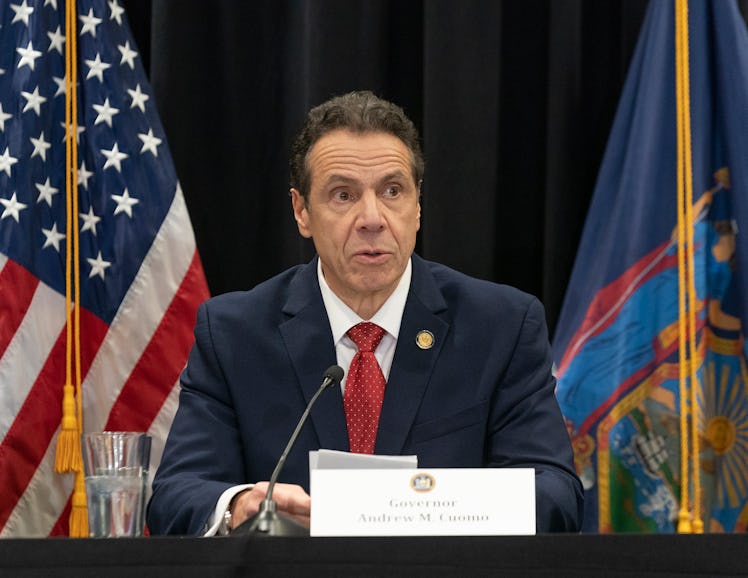
Here's Why Governors Are Declaring A State Of Emergency For Coronavirus
With more than 1,000 confirmed coronavirus cases across the United States as of March 11, multiple states are taking drastic measures to contain the virus, and the World Health Organization has officially classified coronavirus as a pandemic. According to The New York Times, as of March 11, at least 1,015 people in 38 states and Washington, D.C. have been diagnosed with coronavirus, and at least 31 people have died. As a result, governors in several states have declared a state of emergency because of coronavirus. What is a state of emergency? States' coronavirus plans give local officials the ability to support their populations.
According to CNN, a state of emergency opens up several different avenues to handle an infectious disease like coronavirus. Firstly, declaring a state of emergency makes it easier for a city or state to access federal aid, CNN reports, such as the $8.3 billion emergency spending package that President Donald Trump signed on Friday, March 6. As of March 11, at least a dozen states have declared states of emergency due to the spread of coronavirus, including California, New York, Colorado, and North Carolina. Washington Gov. Jay Inslee was one of the first governors to declare a state of emergency in his state on Feb. 29, per Newsweek, where as of March 11, 279 people have tested positive for coronavirus and 24 people have died.
Declaring a state of emergency also gives governors the temporary ability to bypass certain state and federal laws. For example, when New York Gov. Andrew Cuomo declared a state of emergency on March 7, the state no longer had to comply with certain federal transportation laws, and school districts were able to buy cleaning supplies more easily. Cuomo's emergency declaration also gave the state health commissioner the ability to adjust New York's sanitary code to meet immediate needs.
Meanwhile, in California — where Gov. Gavin Newsom declared a state of emergency on March 4 — the state's emergency declaration included provisions to enable out-of-state doctors and nurses to provide in-state assistance. California's state of emergency will also make it easier for city and local officials to declare their own states of emergency, per CNN, which is important because key decisions about school closures and hospital resources are often made at the local level.
The laws governing states of emergency vary from state to state, but the basic premise is the same: Just like the president, state and local officials can declare states of emergency in response to either natural or man-made disasters. According to the national public health nonprofit the Association of State and Territorial Health Officials (ASTHO), the definition of "disaster" has increasingly included public health emergencies as well, such as disease outbreaks and pandemics. That's why governors are able to declare states of emergency for coronavirus. In the past, state officials have declared states of emergency in response to hurricanes, earthquakes, civil unrest, and more.
Declaring a state of emergency sounds drastic, but authorities' primary goal is to access funding and get people to take coronavirus more seriously. An emergency declaration also fast-tracks emergency response procedures, Newsweek reports, such as making it easier for medical professionals to access lab spaces for research. As The Washington Post reported on March 3, now is not the time to panic. Instead, the Centers for Disease Control and Prevention (CDC) have advised people to continue practicing basic hygiene, stay at home while sick, and avoid large gatherings in order to contain the spread of coronavirus.
If you think you’re showing symptoms of coronavirus, which include fever, shortness of breath, and cough, call your doctor before going to get tested. If you’re anxious about the virus’s spread in your community, visit the CDC for up-to-date information and resources, or seek out mental health support. You can find all Elite Daily's coverage of coronavirus here.